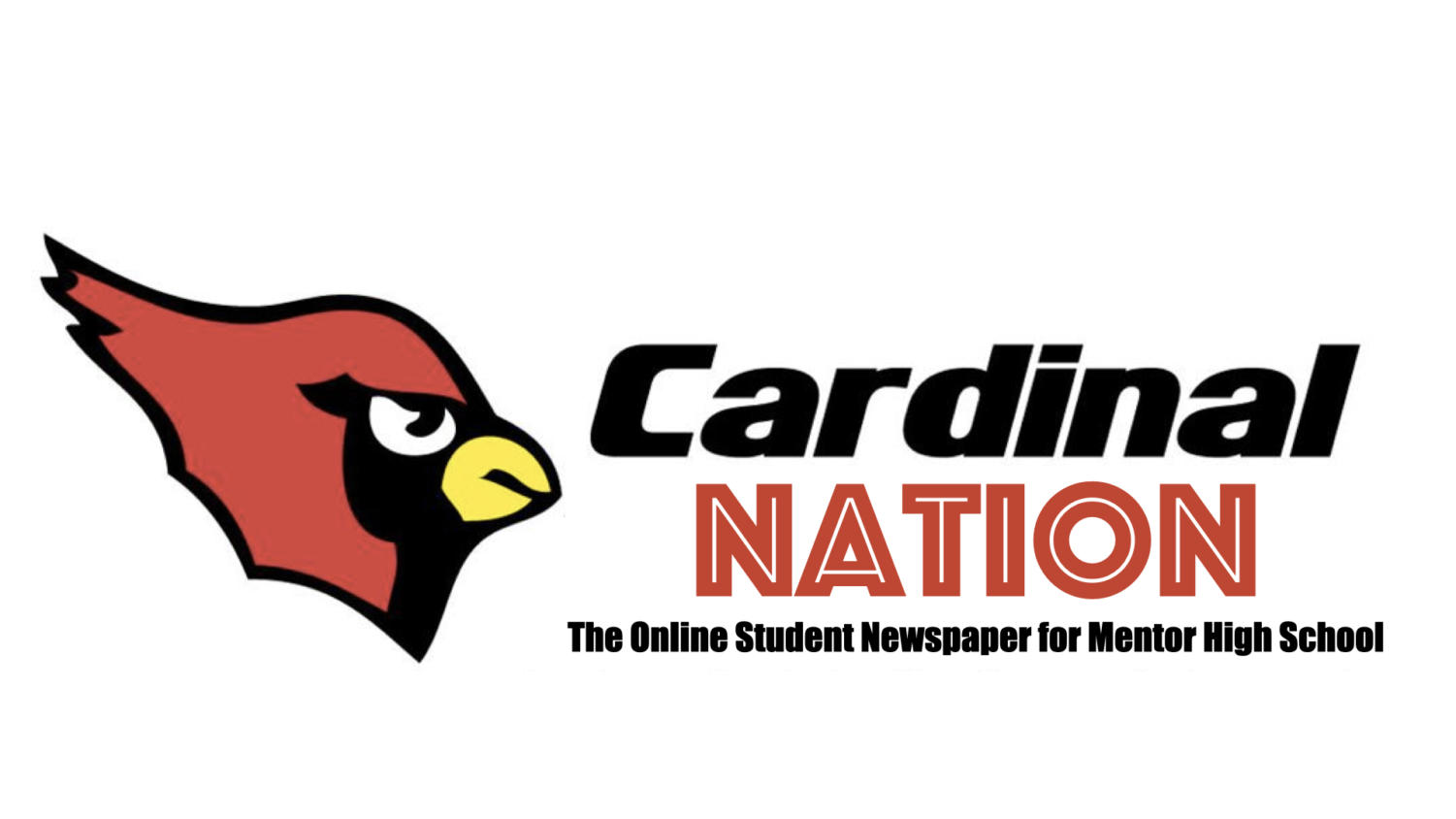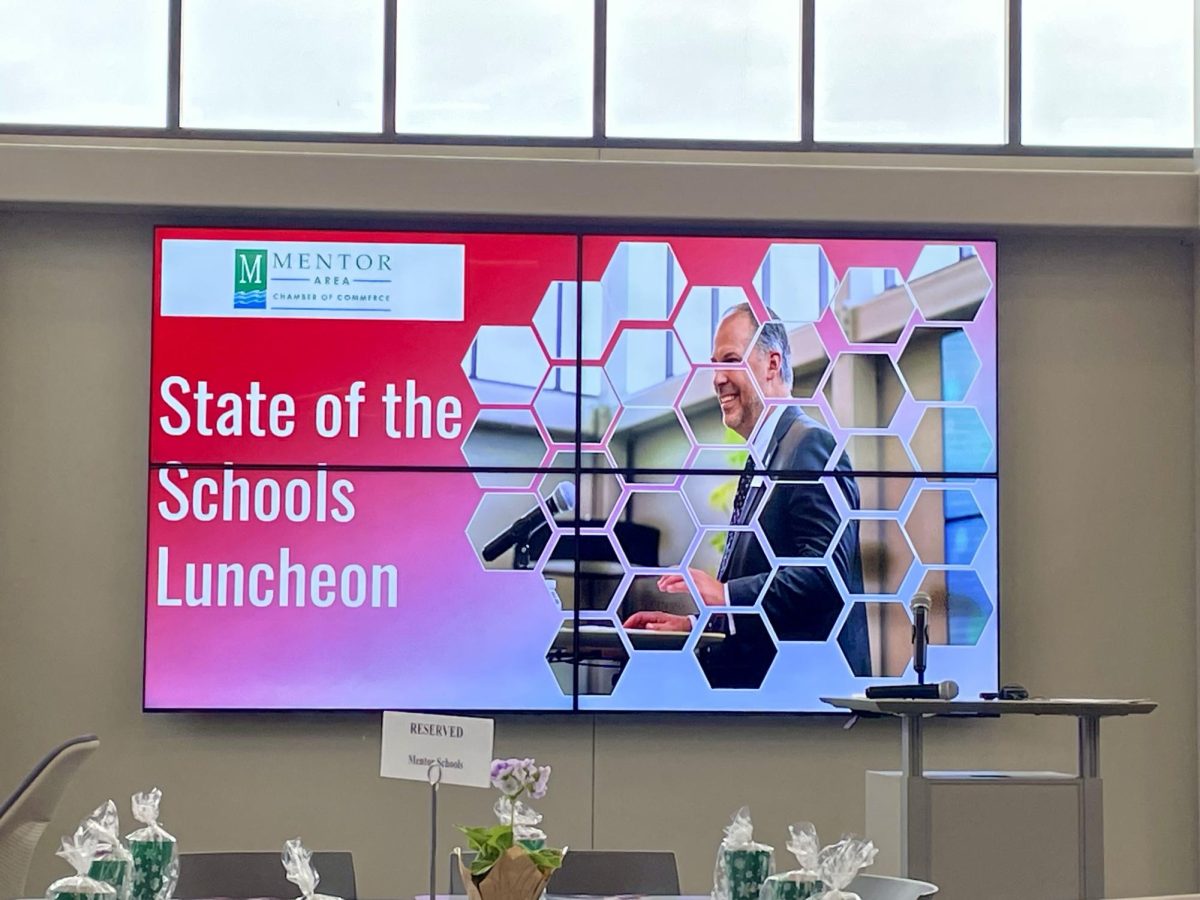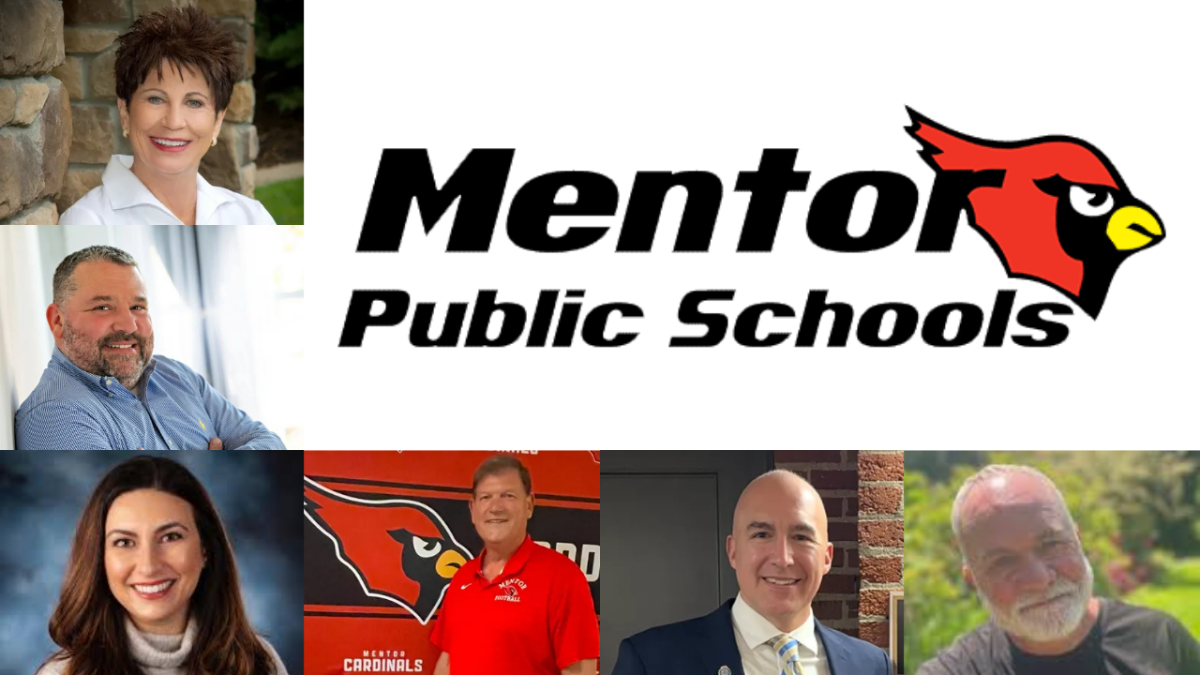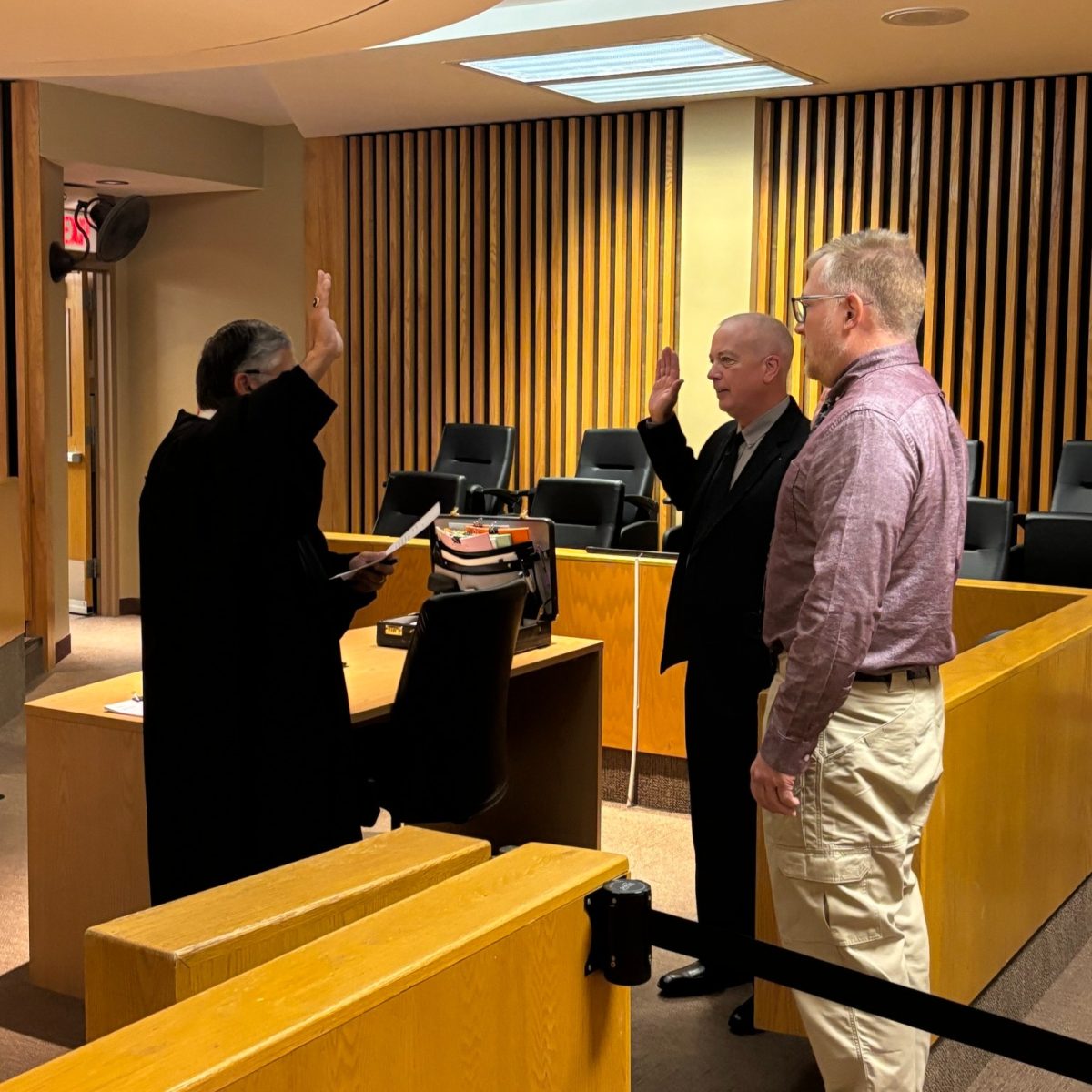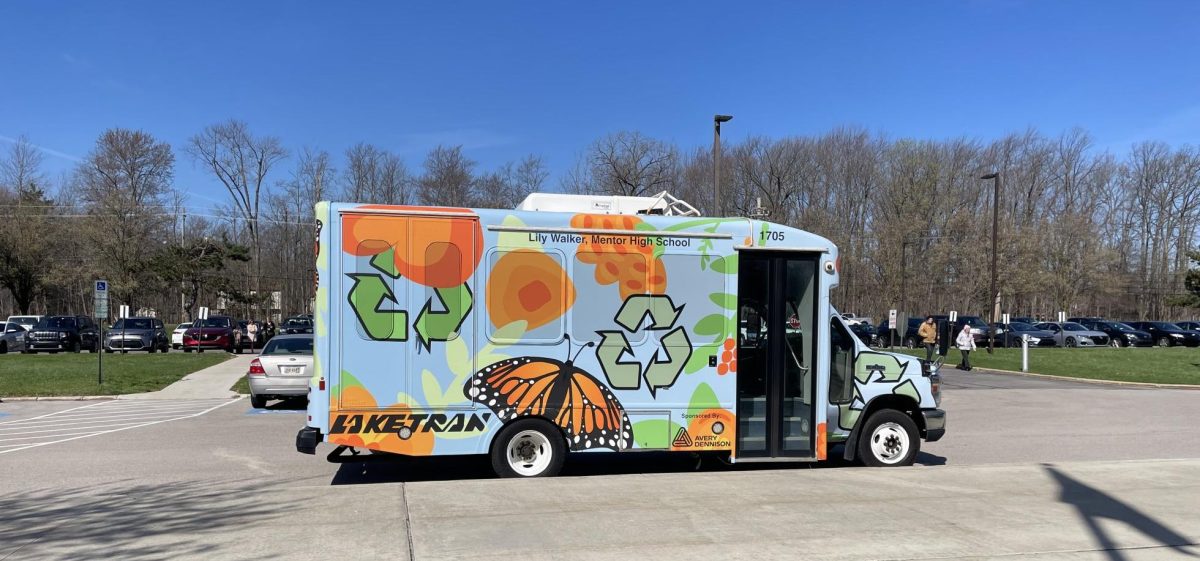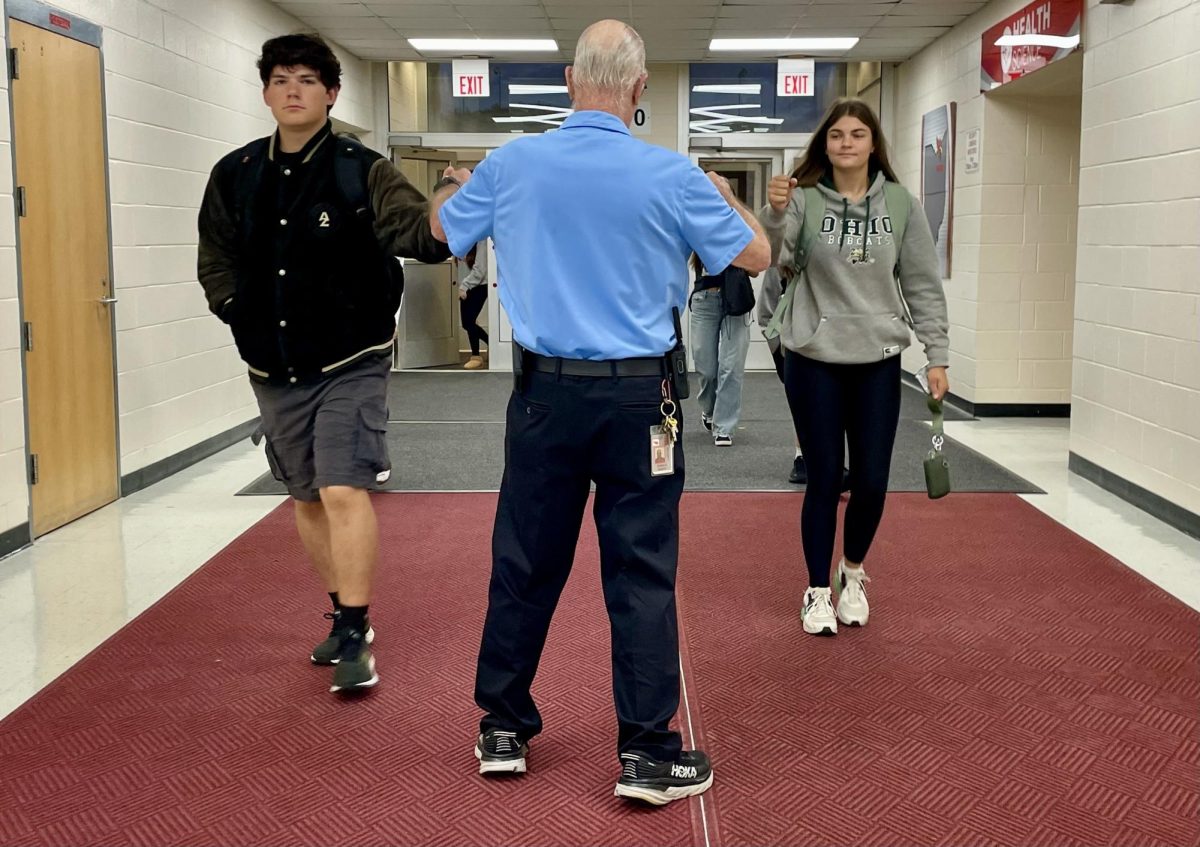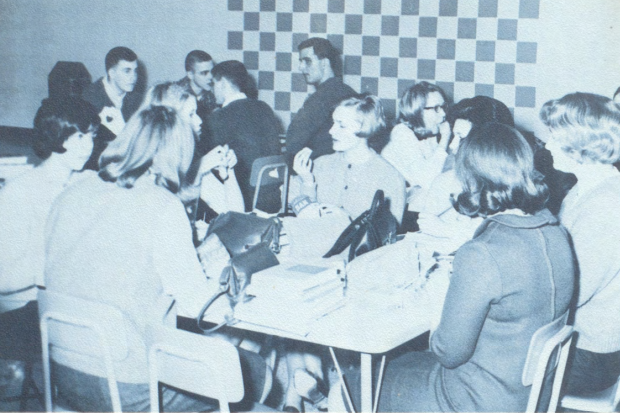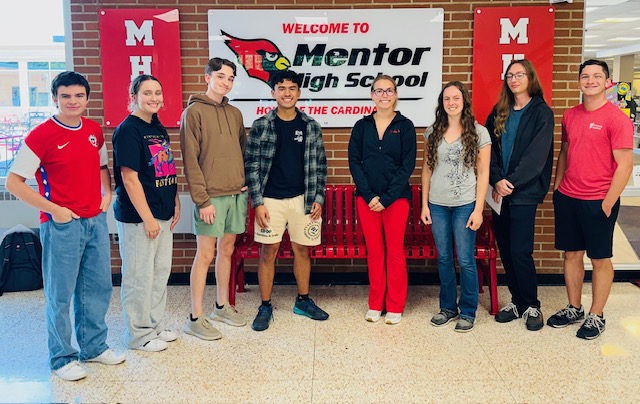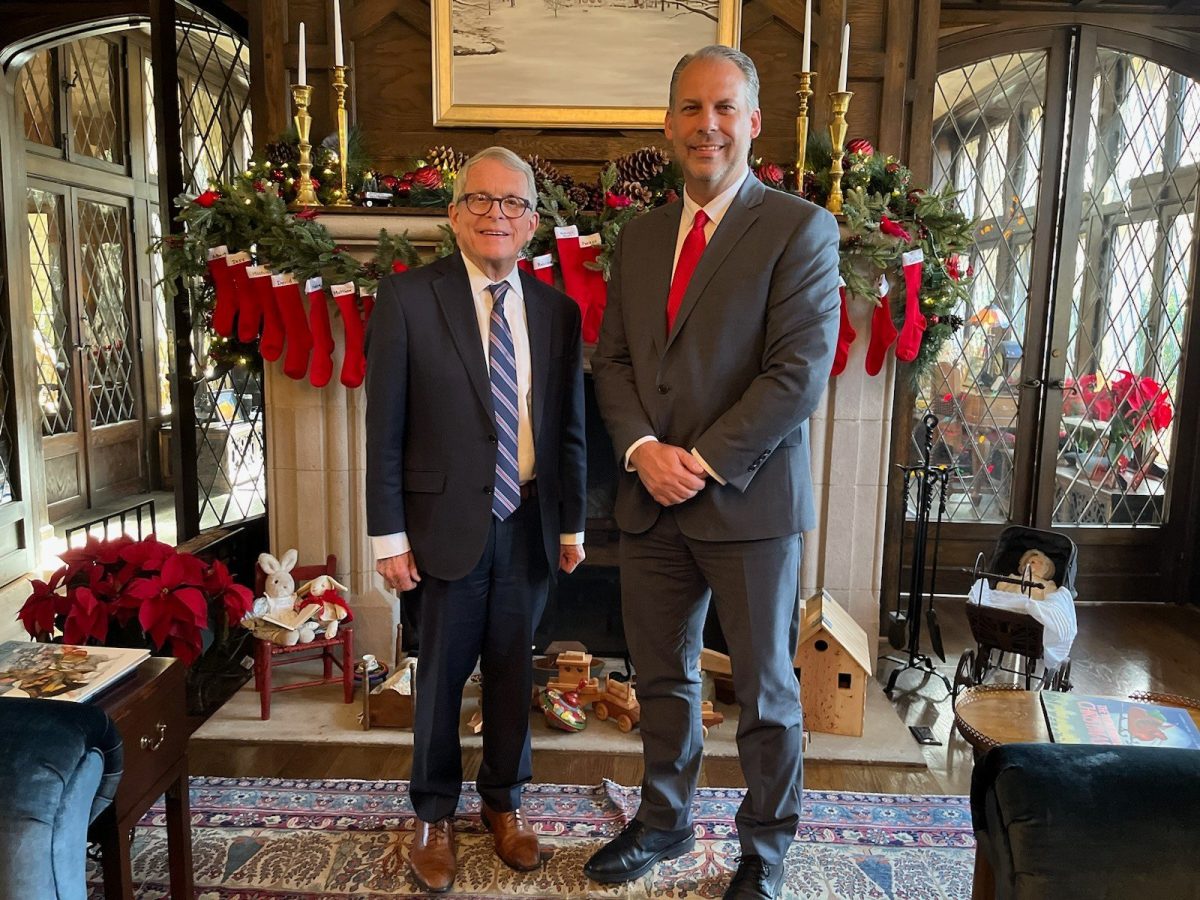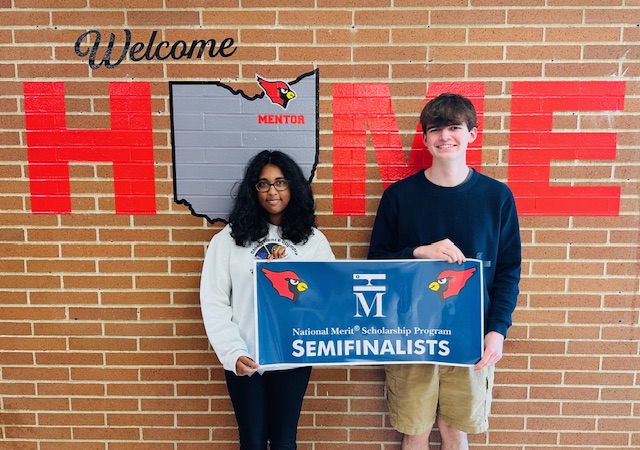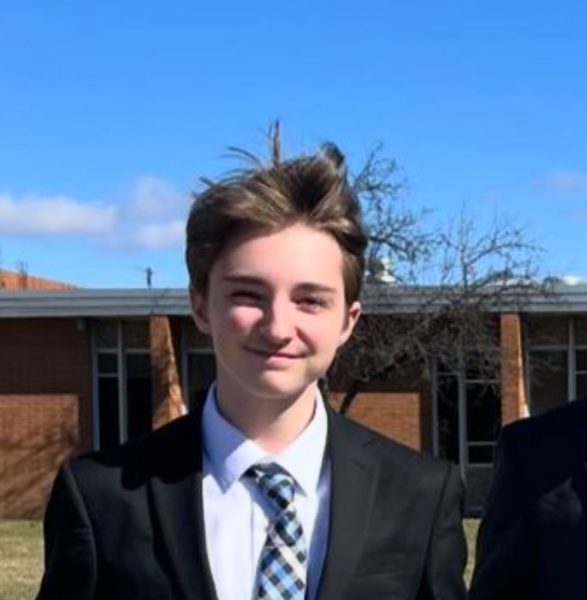The State of the Schools address is an annual outline of the challenges, success, goals, and intended outcomes of implementing programs. In doing so, the Mentor Schools District is able to create a more interactive and transparent relationship with the community and set a foundation for the district to launch to continue improving programs to benefit the future of Mentor students. This year, the State of the Schools Address in Paradigm lasted just over an hour, with Mr. Craig Heath leading the conversation through a presentation encompassing various topics. This event was structured as a luncheon sponsored by the Mentor Chamber of Commerce, facilitating highly positive and talkative discussions, and highlighting the foundational collaborative essence of the event. Smiles, laughs, and clapping proliferated throughout the presentation, showing the bountiful positivity of the event.
Collaboration and Framework for the Future
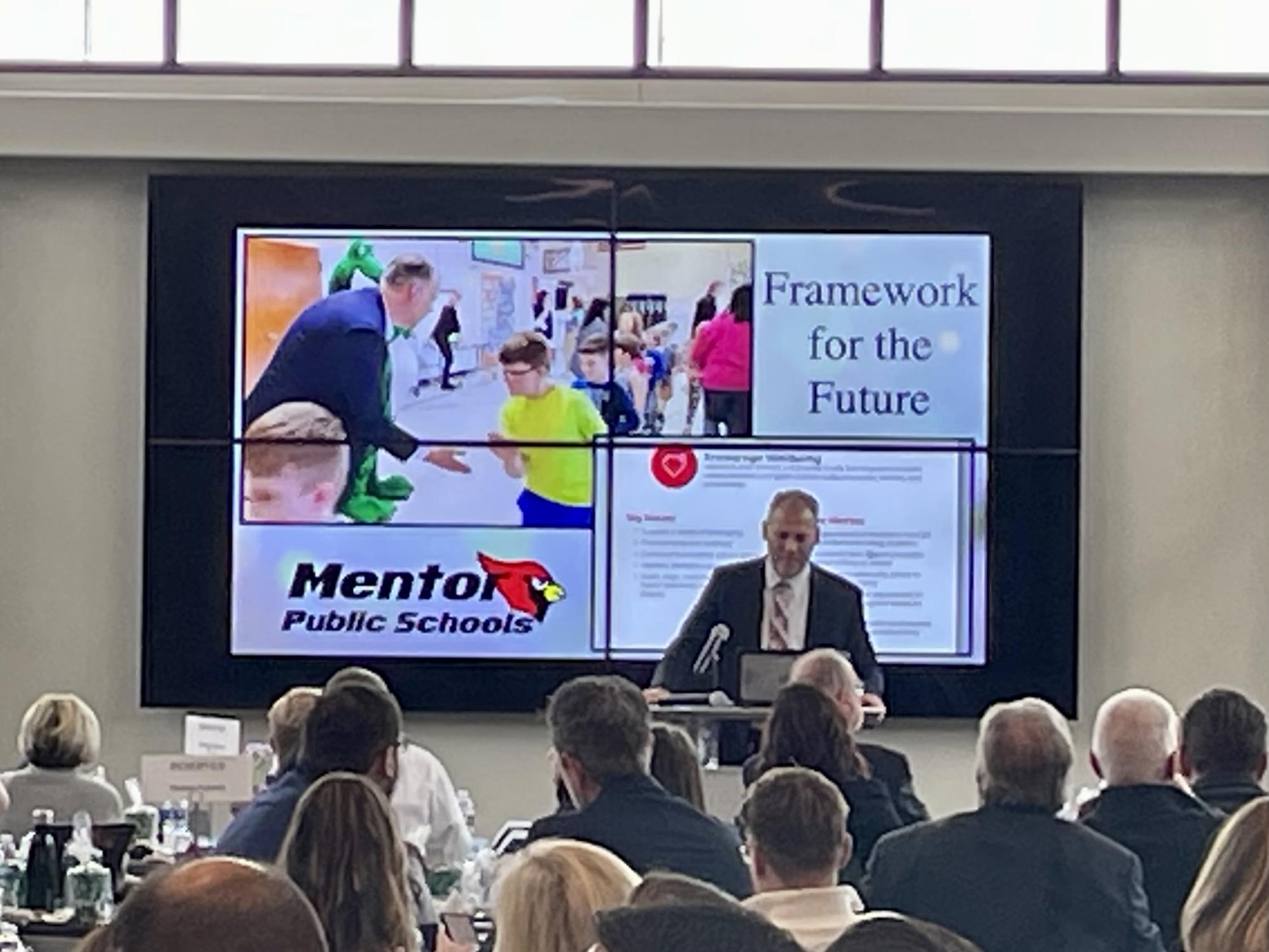
One of the main focuses of the address was a greater emphasis on the influence of student opinion on the district and implementing their ideas to create a communal and diverse environment. The most substantial substance surrounding this topic was the recently completed Framework for the Future discussion, which was organized as a guiding coalition that lasted through the Spring of the 2023-2024 school year and during the summer of 2024. Here, all demographics of the Mentor community were involved. Community members, teachers, parents, students, and administrators came together in lengthy yet beneficial discussions aimed at defining the aspirations of the community and Mentor School District. The creation process of the Guiding Coalition was not to make small edits to the current Mentor Schools Framework for the Future, but substantial, overhauling changes. A common phrase at the meetings of the coalition was “Think bigger” and “What changes would you make with no limits?” As aforementioned, students were of profound importance to the discussion. Seven students were a part of the Guiding Coalition, making up 16% of the members attending the planning process. The aforementioned stakeholders were given the opportunity to answer a series of surveys, classroom observations, panels, and focus groups, ultimately leading to the large Guiding Coalition, which represented the conclusion of the strategic planning process.
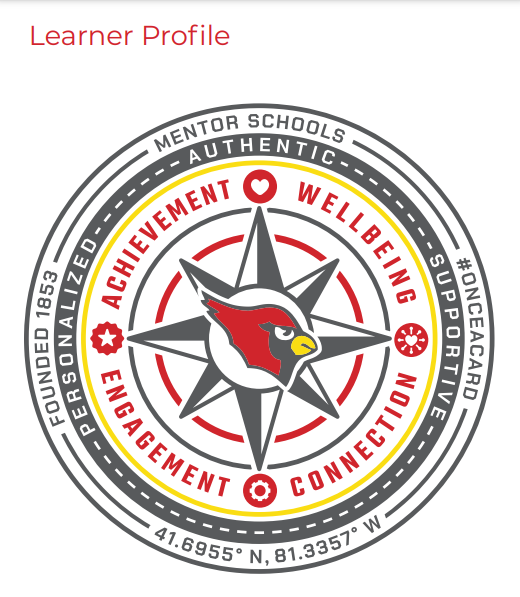
The Framework for the Future for Mentor was the ultimate product of the lengthy conversations between diverse stakeholders. Mr. Heath underscored the importance of “inspiring students today to reach their potential tomorrow.” To facilitate this, the Mentor Learner Profile was a tremendous outcome of the Framework for Future aiming to achieve the goals of this commitment. Specifically, “achievement,” “well-being,” “engagement,” and “connection” are named as the main characteristics of a successful learner in Mentor. Mr. Heath elaborated that achievement relates to setting goals, engagement relates to solving problems and communication clearly, connection relates to active listening, and well-being relates to regulating emotions and choices. The Learning Model that fuels this Learner Profile emphasizes personalized instruction for each child, relevant real-world applications, and a safe and supportive learning community. All of these factors combine, creating a blueprint for the “Big Moves” outlined in the Guiding Coalitions and reiterated in the State of the Schools Address.
Student Achievement
Accentuating the focus on students, Mr. Heath concluded the address with a recognition of students and their achievements. Among the most prominent achievements was over 600 seniors graduating, many planning to pursue a higher education. Others plan to serve our country, dedicating their future to the military. There was also a series of athletes who performed with great esteem at state-level competitions, with some signing agreements of intent to continue their athletic pursuits at the collegiate level. The Mentor High School also led the way in career exploration, holding a very successful career exploration event, where students could connect with local businesses and how to align with their interests and future possible life pursuits.
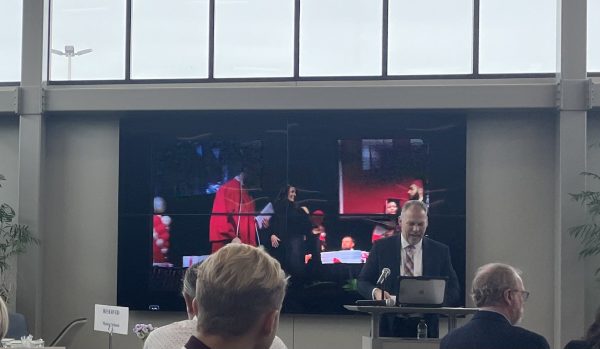
In the arts and science, The Mentor High School Theatre program celebrated its 100th season with very successful and talented plays and musicals occurring throughout the school year. The Fighting Cardinal Marching Band maintained its prestige, made up of nearly 200 students, earning the highest possible rating at the esteemed state band competition in the 2023-2024 season. The Science Olympiad Teams maintained a similar level of distinction, performing with excellence at the Ohio State Science Olympiad competition. Continuing on the arts and sciences, current senior Hailey Ambrus was highlighted in their achievement for winning the Laketran “Wrap the Bus” contest. This continues the trend of a Mentor Student winning the contest four years in a row. The Memory Project, developed through the Fine Arts Programs at Mentor High School, creates portraits of children around the world to foster friendly cultural exchange and understanding.
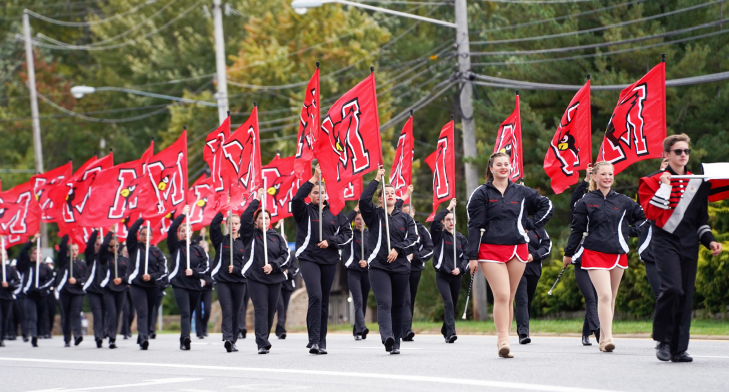
Additionally, the Mentor Schools District contributed substantially to the community, with a notable 200,000 pounds of produce being distributed through food markets that were facilitated by partnerships with the Greater Cleveland Food Bank and the United Way. In both Make a Difference Day, led by middle school students, and several Veteran’s Day ceremonies, members of the community were positively impacted and honored.
Altogether, the address showcased how the programs of the district continue to foster talented, success-oriented students who are prepared to tackle the challenges in any aspect of life.
Student Support Initiatives
Throughout the address, Superintendent Heath was adamant about making student-centric decisions that benefit the quality of education received by Mentor’s student body of over 7,000 individuals. Mr. Heath outlined various initiatives that the schools have both established and expanded upon to ensure student success and safety.
Mentor High School’s offering of Career Technical Programs (CTE) was particularly discussed for its importance in preparing students for their future career pathways and ability to contribute skilled individuals to the workforce of Mentor. CTE programs at Mentor High assist students in receiving an education focused on their future goals, motivations, and passions while ensuring that they are ready for college, technical school, and careers. In order to offer these programs, Mentor School District is a member of Lake Shore Compact, a coalition of schools in northeast Ohio led by Dr. Joseph Glavan that jointly work to offer career technical education to their students. Through this program, juniors and seniors at Mentor, Wickliffe, and Euclid partake in two-year specialized programs like Allied Health, Construction, Urban Agriculture, Welding, and Criminal Investigation while gaining skills, experience, certifications, and college credits through the College Credit Plus (CCP) program. Mentor’s Allied Health CTE program, alongside Lake Elementary School’s house system, was featured at the Ohio School Board Association (OSBA) Student Achievement Fair earlier this November, showcasing the program’s innovation and the students’ talents to a statewide audience of educators. Lake Shore Compact currently serves around 700 students spanning 21 different CTE programs.

For the 2025-26 school year, Mentor will also be expanding its CTE programs through various Career Academies. This involves one-year academies that aim to fit seamlessly into a student’s busy schedule, including the Aviation Academy, Workforce Readiness Academy, and Young Professionals Academy. Some of these CTE Career Academies will be in-house to Mentor High School, relieving Mentor students of the need to travel to area high schools or local colleges. Such expansions additionally add more seats to our CTE programs, allowing students who had previously been on the waitlist to immerse themselves in their career interests. By adding a diverse option of courses to Mentor’s offering, students will be able to explore various career interests and develop skills necessary to gain a head start in their field as they graduate high school. Mr. Heath described that this would allow students to form a sense of independence upon leaving Mentor High School’s “nest,” so that they would be set up for success upon graduation.
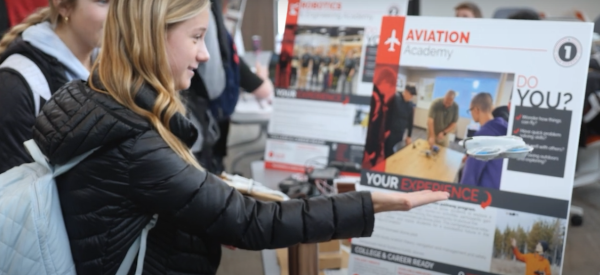
Mentor’s CTE program initiatives and partnerships were far from the only ones discussed at the address. Mentor has historically joined forces with local colleges to grant college credits to high school and middle school students before they even graduate through Ohio’s CCP program. In the past, only select college courses have been offered as physical classes at Mentor High School, with a multitude of other online options as well as credit-granting CTE programs. This past year, however, courses have expanded into Mentor High School’s Paradigm building, where students can now have additional offerings to choose from, such as Economics, U.S. National Government, and Effective Public Speaking, as credit from Lakeland Community College.
Tying together Mentor’s CTE and CCP programs, Mr. Heath spoke of how Ohio Director of Education and Workforce Development Stephen Dackin toured MHS and learned about Mentor’s programs alongside Dr. Sunil Ahuja, President of Lakeland Community College. Mr. Heath explained how such developments in the CTE program helped achieve the goals of Outcome #2 of the Framework for the Future to nurture college and career pathways, allowing for both college and career readiness.
Financial Update
Over the past year, the school district has experienced both positive and negative events in regard to its economic situation. In 2024, the school district received a $2.2 million grant from the State of Ohio to expand its academy programs, including new kitchens and computer classrooms to enhance the student experience and provide additional routes to further student education.
During the presentation, it was also reported that Mentor has the 3rd lowest property tax rate of any school district in Lake County, with just under a 3-millage rate. Though residents seem to enjoy the lower tax rates, the reduced income also comes at a major cost to the school district. According to Mr. Heath, Mentor Schools are currently spending more money than taking in through revenue sources, whether that being state funds and grants, taxes, or community contributions. As a result, many aspects of the district’s finances have had to be reviewed, with some aspects changed to accommodate the lower yearly revenues.
Such aspects include reconsidered employee benefits for the district, a reduction in the school bus fleet, a reduction in staff in response to decreased student enrollment, and closing school buildings. Another contributing factor was the failure of the $1 million per year levy which would have helped bolster the district’s income, which directly resulted in the cutting of PI plans for the district. The district may also be put into a worse position if federal grants are paused, which President Trump planned to put into effect on Tuesday but was blocked by a federal judge (AP News). For now, Mentor Public Schools is prepared to handle the onset of economic concerns through reviewed spending plans and an increased ask for community contributions.
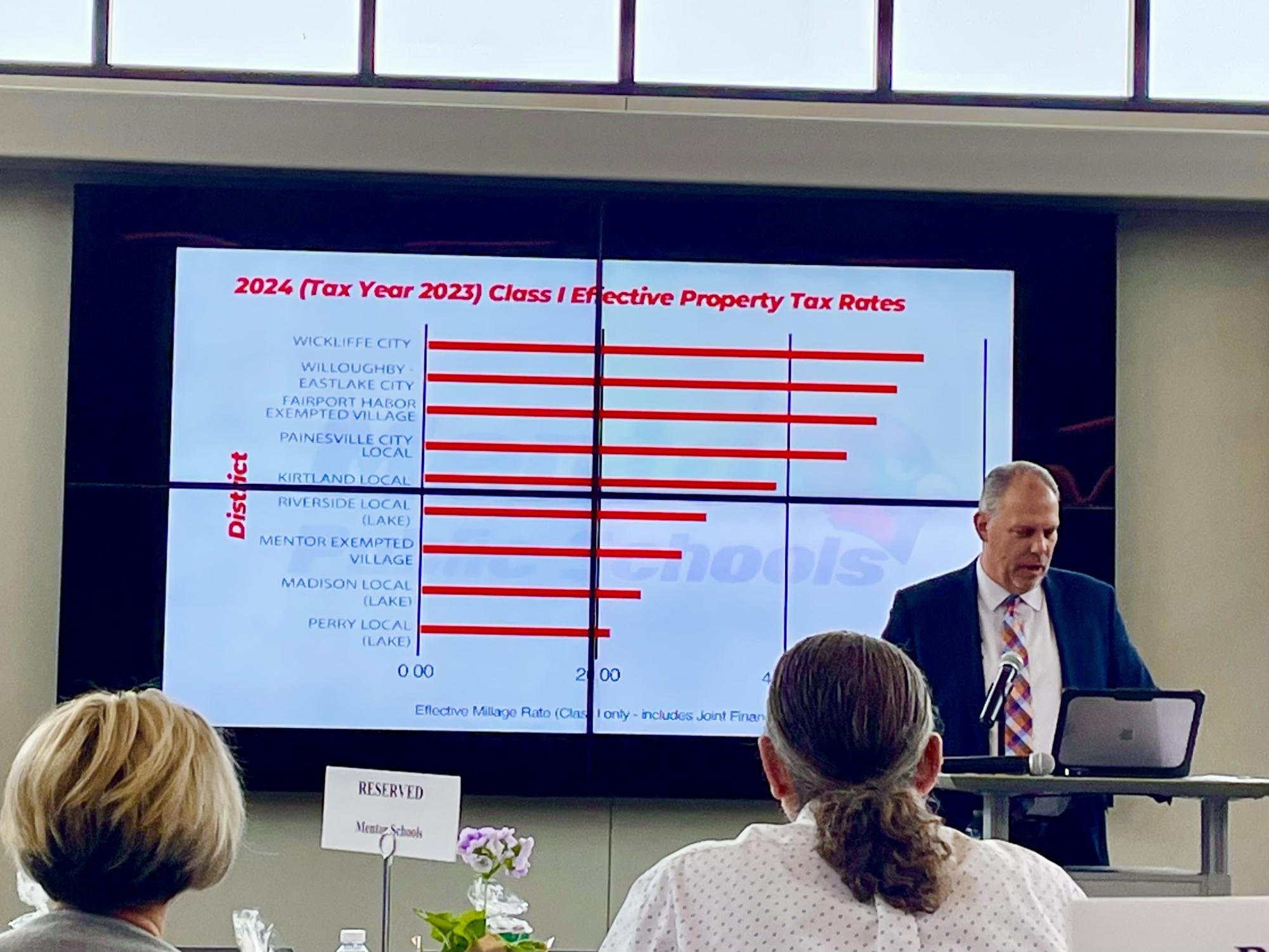
Student Safety and Bullying Prevention
To ensure the safety of all students in the district, Mentor Public Schools is currently in the final stages of a plan to place a police officer in each school building. In the end, the district hopes to hire Mentor Police officers to ensure the protection of Mentor students. In the same field, Mr. Heath made it abundantly clear that Mentor Schools is committed to ensuring the protection of every student by actively considering and taking action on every report from students and community members regardless of the content. Together, this places the district on a positive path for safety developments.
Still, especially at the high school level, there have been continued trends of bullying among the student body. Though minimal in regard to the student population directly affected, the district has made it clear that there will not be a tolerance for such behavior. For students acting inappropriately, the district has instituted disciplinary measures to ensure students receive consequences for negative actions. To prevent these incidents from occurring, to begin with, the district has also instituted a number of kindness campaigns to inspire the students to act in their best interest for their future.
Mentor Schools’ Report Card
Ohio School Report Cards are required by law and aim to evaluate the performance of public schools. Ohio School Report Cards provide parents, educators, and community members with insights on how well a school does in certain areas. The report illustrates how a school is performing in several categories including achievement, graduation rate, student progress, and others. Mentor Public Schools has obtained a 4.5-star rating. This is the second-highest score in the Lake County region, an even more impressive feat considering how our district falls into an area with one of the lowest property tax rates. Below are the specifics of our score:
- Achievement: 4/5
(based on state test scores)
- Progress 4/5
(based on students’ growth)
- Gap closing 5/5
(a measure of reduction in educational gaps)
- Graduation 4/5
(a measure of the graduation rate. 95.1% of our students graduated in 5 years)
- Early Literacy 3/5
(reading proficiency of students kindergarten through third grade)
Community Reaction
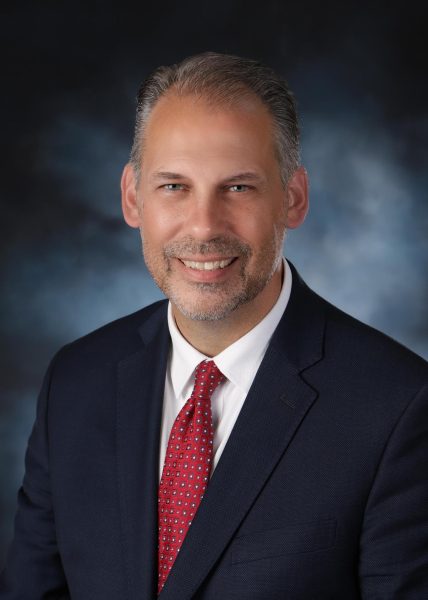
Mr. Craig Heath – Superintendent, Mentor Public Schools
Cardinal Nation: You mentioned that we would start implementing more applications and engagement programs for earlier and earlier years. Can you develop how that would be different between the different levels of schooling?
Craig Heath: Yeah, so really what we’re trying to do is make sure that we generate some career awareness pieces at the elementary level even getting down as low as preschool. For example, we want students to be able to understand what career opportunities are out there and make sure that they become aware of some of those. Often times, they’ll know what their mom and dad does, they know what a police officer and firefighter is, but beyond that, they don’t know a whole lot.
Cardinal Nation: Can you develop on perhaps the greatest obstacle or challenge that the district has experienced in the last year and how we’re trying to overcome it?
Craig Heath: Oh, that’s a great question. I think probably the biggest challenge that still remains is how schools are funded in the state of Ohio and that’s a big challenge still for us. So I think really the funding piece is the most challenging thing for us. You know, we’ve got some great ideas, we’ve got some great things moving from an academic standpoint and we’re trying to do things with as little impact on our budgets as possible. So really what we’re trying to do is maybe move resources around that we already currently have to be able to accommodate what it is that we’re trying to do from an academic standpoint. So I think if we can continue to advocate for the funding pieces to the puzzle, that’s where we’re going to see the most growth. Dr. Glavan and I have had an opportunity to meet with some of our state legislatures to really talk through some of our ideas, from a CTE funding standpoint, which if we can get more funding, that will open up additional general funding dollars to allow us to continue some of the other programs that we have going on too. I think with some of the good connections that we have with our state legislators, we’ll be in good shape.

Mrs. Maggie Cook – President, Board of Education
Cardinal Nation: Did any of the points today stand out as a key point of discussion that you are interested in looking into further through the board of education and other avenues?
Maggie Cook: The student-centered approach was the biggest takeaway for me, and making sure that we hear the students’ voice in everything, guiding us to making our decisions.
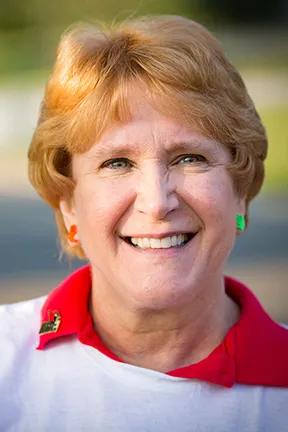
Mrs. Jeschelnig – Vice-President, Board of Education
Cardinal Nation: Did any of the points today stand out as a key point of discussion that you are interested in looking into further through the board of education and other avenues?
Virginia Jeschelnig: So when Mr. Heath is talking, especially to this group, that aspect of community partnership, what I think these business leaders are particularly interested in is that outcome where students are leaving us, then what? And how we’re marrying the goals, the academies, helping kids kind of get traction so that if they want to stay here and mentor, they’ve got those kinds of opportunities in place and the community is hearing how their investment is building the future of this community. I think that’s a very important aspect of it.
Cardinal Nation: What do you see in the future regarding managing the finances in terms of programs for students and outreach to the community?
Virginia Jeschelnig: So we know that the number of 18-year-olds is declining because the population is contracting. So students, there will be fewer in the future. So balancing and managing resources will be very important. And all of the issues that we face for public education funding in the state of Ohio had been stabilized for a couple of years. It seemed like the last four we were kind of getting it together. And then there was this sort of left turn that was concerning about the sustainability, and that’s what the state is talking about. So that’s worrying. So it’s all the more important that the community recognizes the value of lower property taxes with high outcomes or good results. So you put the money in and you’re getting a value back in terms of building the workforce for the future. And it’s more than just workers, you know to me that’s a very small aspect of it. What’s really important is the future of our society. Good human beings ready to participate and function well and follow their own dreams and goals and then give back to this community and wherever they may end up, if they don’t live here. I think those are important. There wasn’t anything Mr. Heath said that I don’t 100% believe. And that’s as a taxpayer and I’ve got my family here in this community, whether it’s my children and my grandchildren, that the school district is providing a good foundation for the success of all of us. We’re all on the boat together.
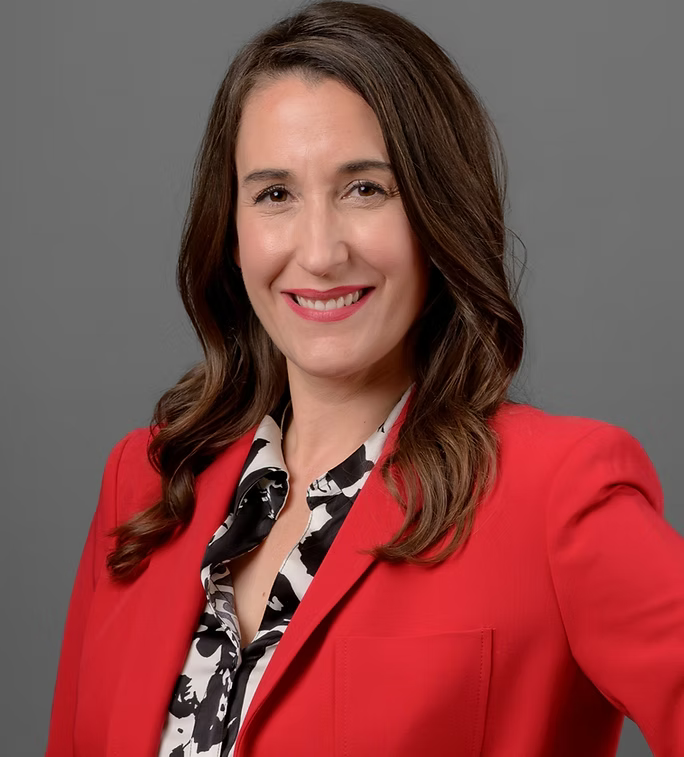
Mrs. Lauren Marchaza – Board of Education
Cardinal Nation: What was your general reaction to today’s presentation, and how do you feel about the future knowing this information?
Lauren Marchaza: The State of the Schools presentation is a retrospective of recent accomplishments and a promise of our intentions for the year ahead. I’m proud of the work we’ve been able to do together—most notably the strategic plan, our Framework for the Future. It was a truly collaborative effort that brought together every stakeholder group in the community: students, staff, community leaders, parents, and taxpayers. This kind of cooperative work—in which we were able to find common ground despite differences—gives me great hope for the future of our district.
Cardinal Nation: How will the economic concerns of the presentation affect how you go about your role as a board member, especially concerning student activities and community programs?
Lauren Marchaza: We must face the reality that our costs continue to rise while our revenue—most of which comes from local taxpayers—stays relatively flat. In my role as a board member, I will advocate for funding public education at the state and federal levels, and ask our administrative team to constantly consider where we can trim the budget without sacrificing academics or safety. Conversations about placing a general operating levy on the ballot this fall are ongoing as well, so stay tuned to see how that develops. Ultimately, I will be trying to help us find that balance between controlling costs while providing you students with everything we can to help you in your academic and professional journeys.
Cardinal Nation: Did any of the points today stand out as a key point of discussion that you are interested in looking into further through the board of education and other avenues?
Lauren Marchaza: I’m really excited about our “Big Moves” within the strategic plan—most notably creating community engagement opportunities and addressing the well-being and sense of belonging for all of our students. As I mentioned earlier, I truly believe we accomplish the best things when we do them together. The Cardinal Cafe Q&A community event series are the perfect example of how we can solve problems together, and it gives our community members a space for dialogue with our leaders. Another prime example is the anti-bullying ad hoc committee and plan I proposed at our January regular meeting, which is a collaborative effort that gathers students, parents, board members, and staff to confront the serious issue of bullying in our schools.
Dr. Joe Glavan – CTE Coordinator & Director of Lake Shore Impact
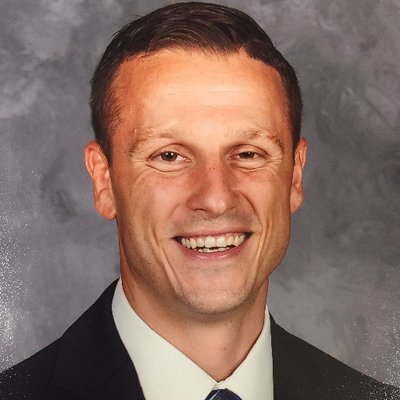
Cardinal Nation: Mr. Heath spoke significantly about Mentor’s CTE programs, including our new Career Academies. Looking back at the past year, what’s an accomplishment in the CTE program that you believe had a measurable impact on both students and the community?
Dr. Glavan: I think we’ve had a lot of really big successes over the last 12 months. I think some of the ones that we are most excited for, that’s gonna have the biggest impact is our expansion, is the creation of our Mentor Career Academies, through that new program and that new initiative, we’re gonna be able to expand course offerings to not only offer it to more students, and also offer it in ways that allows us to meet them at their level. So, what we’ve really focused on is not just two year programs, but now it’s two year, one year, semester long, with over 22 different programs. And the response has been really successful.
Cardinal Nation: Are there any ways you intend to expand the Career Academy programs over the next year?
Dr. Glavan: Yeah. So, you know right now, we’re obviously going under the biggest expansion, but I think over the next 12 to 18 months, we are already looking at areas of need in the community and interest with students to see where these are aligned. So the short answer is absolutely, yes.
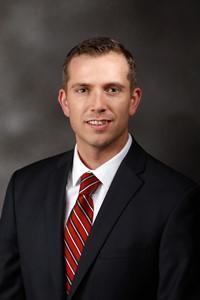
Mr. Jason Crowe – Principal, Mentor High School
Cardinal Nation: Now that CCP classes have expanded to the Paradigm, what specific impacts have you seen on student opportunities and engagement?
Mr. Jason Crowe: We’ve seen an increase in our CCP enrollment over the past few years and this strategic expansion provides additional opportunities for students to take college level classes without having to leave our campus. This allows students to maximize the course offerings we offer through Mentor High School while complementing it with CCP courses. Currently we emphasize CCP courses that are standard to most universities to help set our students up for future success while exploring adding new electives that might peak their interest. One elective we are exploring adding for the upcoming school year through CCP is American Sign Language (ASL).
Cardinal Nation: The Career Academy classes have grown significantly this year—what real-world skills and experiences have students gained, and how are these classes preparing them for their futures?
Mr. Jason Crowe: Our Career Academy classes, which fall under career-technical education, prepare students for life beyond MHS through a combination of hands-on experiences, industry-specific skills, and career exploration opportunities. These academies help bridge the gap between school based academics and workforce readiness by teaching practical skills in fields like healthcare, technology, culinary arts, digital media, construction, manufacturing and other career fields. Many academies offer industry recognized credentials, college credit, internship-like experiences and can help to give students a head start in their careers and/or college. I believe many of the skills we want our students as well as what businesses want our students to have when they graduate from Mentor High School are also embedded and fostered in all of the courses at the high school and is why we place such a high value on collaboration, communication, critical thinking and creativity in classes.
Cardinal Nation: Following Mr. Heath’s presentation, what stands out to you as the biggest change in the schools and what do you hope to see continue to improve in the future?
Mr. Jason Crowe: Each of the 5 outcomes from our district’s Framework for the Future is exciting and I believe will have a positive impact on students, but what stands out the most to me is the focused effort to college and career readiness in Outcome #2 Nurture College and Career Pathways. The district’s attention to this outcome will help us to continue to develop outstanding programming that connects students to their interests and prepares them for life beyond high school.
Mr. Kevin Malecek – Mentor Director of Economic Development & International Trade
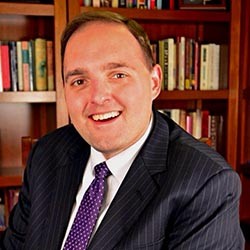
Cardinal Nation: What was your reaction to today’s State of the Schools presentation, especially in the case of our CTE programs and their community impact, and how do you feel about it?
Mr. Kevin Malecek: I think it was extremely positive. There’s a lot of great momentum that’s going on with the schools right now, particularly of importance to me, because the economic development aspect is what’s happening at the Career Academies, and we’re trying to integrate local employers that are having that pipeline for a future workforce that makes sure that we’re going to have a strong economy.
Cardinal Nation: In what ways do you think the strength of Mentor’s local economy supports the schools and the quality of education they’re able to give our students?
Mr. Kevin Malecek: I think it’s all very linked. There’s a lot of synergy that exists between the strength of employers that are here involved with the schools. It helps us attract better employers, maintain employers, because if they know that they’re going to have some type of workforce pipeline, they’re going to want to stay here, reinvest, hire more people. That’s all going to be comparable.
Cardinal Nation: After seeing today’s presentation, what do you think some improvements or new priorities should be for the districts focusing on the next year?
Mr. Kevin Malecek: Well, I think it’s a continual investment in making sure that there’s going to be, and again, I’m putting on my hat as an economic developer, making sure that there’s going to be continued linkages, other links to employers. They have a great relationship with CRT, they have a great relationship with some other employers, but continuing on that path of building up more relationships is only gonna be good for the employers, and it’s only gonna be good for the students as well.
What’s the Takeaway?
The State of the Schools address ultimately brought together a diverse group of individuals from our community to celebrate the successes of the Mentor Schools District and provide a framework to address any potential challenges our district faces. Student support initiatives, our financial status, community partnerships and engagement, safety, and fostering collaboration were the most prominent focuses of this fantastic event.
Cardinal Nation is extremely grateful to Mr. Heath and Mentor Public Schools for their continued support of student learning and especially for the invitation to attend Tuesday’s State of the Schools Address.
